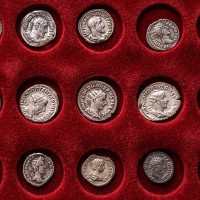Leaving Valuable Collections In Your Estate Plan

Our collections often have a dual purpose. Some of us collect for the value; we know what we are collecting will increase in value, and we know that amassing volumes of that item can lead to a good sum of money down the road. Others collect just because we have a personal interest in what we are collecting.
When you make an estate plan it’s important to think about these collections. They can be easily forgotten, especially if we aren’t sure what the collection is worth, or if we don’t think the collection will have any significant value.
Getting Appraisals
Even if you know your collection has value, and is worth something—that doesn’t mean that whomever you leave that collection to, knows the same thing, or appreciates the value in inheriting the collection. That’s especially true if the collection is made up of items that the general public may not have an extensive knowledge about.
The first thing that you want to do is have the collection appraised or have some way of valuing it. This can avoid problems if you leave the collection to someone, and they end up feeling cheated, without being aware that they have actually inherited something valuable.
The appraisal should be included in, and made a part of, your estate plan, so that your beneficiaries appreciate the value of what you are inheriting.
Using a Trust
If you are concerned that whomever inherits the collection may just sell the property for pennies on the dollar, you may want to consider a trust, which restricts how and when the items can be sold.
A trust can be especially valuable, if the collection needs maintenance and that maintenance costs money—imagine instruments, which may need to be tuned, or serviced, throughout time, or cars, which may need to be housed and stored somewhere.
Some items may only have maximum value, if they are sold or liquidated a certain way, or through certain channels. For example, an instrument sold on ebay may have limited value, whereas that same instrument sold to an instrument dealer may fetch more money.
Your trust can dictate how the property will be sold or liquidated.
Collections that don’t have monetary value, but may have value to a specific industry, can be left as charitable donations.
Dividing the Collection
You should think about whether one person will inherit all of the property in the collection, or whether you will split them up between beneficiaries.
Again, this will take an appraiser to determine whether the value of the collection would be lost or reduced, if the property is owned by different people, or whether every item in the collection has its own independent value, regardless of whether every item in that collection is owned by the same person.
Do you have a collection that you need to include in your estate plan? Call the Torrance probate will and estate attorneys at Samuel Ford Law today.
Source:
edgeforbusiness.com/i-have-a-collection-how-should-i-include-it-in-my-estate-plan#:~:text=Sometimes%20the%20collections%20have%20more,that%20its%20value%20is%20maximized.
